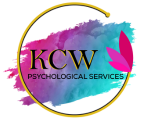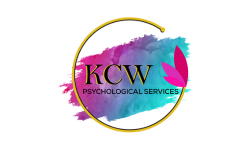
Dance/movement therapy (DMT) is a powerful modality that uses the body’s natural movements to promote emotional, cognitive, and physical well-being. At KCW Psychological Services, we embrace DMT as a key component of our holistic approach to mental health, helping clients achieve emotional release and deeper embodiment.
What is Dance/Movement Therapy?

Understanding DMT
Dance/movement therapy is a therapeutic practice that integrates the body, mind, and spirit through movement. Developed in the mid-20th century, DMT is based on the premise that movement and emotion are interconnected, and that body movement can influence mental and emotional states.
Core Principles of DMT
- Mind-Body Connection: Recognizing the link between physical movement and emotional well-being.
- Nonverbal Expression: Using movement to express feelings that may be difficult to articulate with words.
- Holistic Approach: Considering the whole person, including their physical, emotional, and spiritual dimensions.
The Benefits of Dance/Movement Therapy
Facilitating Emotional Release
DMT provides a safe space for individuals to explore and express their emotions through movement. This can lead to profound emotional release and a sense of relief.
Emotional Release Techniques:
- Free Movement: Encouraging spontaneous movement to release pent-up emotions.
- Structured Dance: Using specific dance forms to process and express feelings.
- Mirroring: Therapists mirror clients’ movements to validate and support their emotional expression.
Enhancing Embodiment
Embodiment involves being fully present in one’s body and aware of bodily sensations. DMT helps individuals reconnect with their bodies, enhancing self-awareness and promoting a sense of grounding.
Embodiment Practices:
- Body Scanning: Bringing attention to different parts of the body to increase awareness.
- Breath Work: Using breath to connect with bodily sensations and emotions.
- Mindful Movement: Engaging in movement with focused awareness on the body’s experience.


Reducing Stress and Anxiety
Regular participation in DMT has been shown to reduce stress and anxiety levels. The rhythmic and repetitive nature of dance can induce a state of relaxation and calm.
Stress Reduction Techniques:
- Rhythmic Movement: Using repetitive movements to create a calming effect.
- Movement Meditation: Combining movement with meditation to reduce stress.
- Group Dance: Participating in group dance to foster connection and reduce feelings of isolation.
Improving Mood and Emotional Well-being
DMT can elevate mood and enhance overall emotional well-being. Engaging in creative movement stimulates the release of endorphins, the body’s natural mood lifters.
Mood-Boosting Activities:
- Joyful Dance: Focusing on movements that evoke joy and pleasure.
- Expressive Dance: Using dance to explore and express a range of emotions.
- Improvisation: Allowing spontaneous and creative movement to emerge.
The KCW Psychological Services Approach
Holistic and Identity-Affirming Care
At KCW Psychological Services, we provide holistic and identity-affirming care that integrates DMT into our therapeutic offerings. We recognize the unique experiences of each client and tailor our approaches to meet their individual needs.
Experienced and Compassionate Therapists
Our team of licensed dance/movement therapists is dedicated to helping clients achieve their mental health goals through movement. They bring expertise, empathy, and creativity to each session, ensuring a supportive and effective therapeutic experience.
Safe and Supportive Environment
We create a safe and welcoming space where clients can explore their emotions and express themselves freely through movement. Our goal is to foster a sense of safety and trust, allowing for deep emotional work and healing.

Compelling Statistic
According to the American Dance Therapy Association, over 90% of participants in DMT report significant improvements in emotional well-being and a greater sense of embodiment.
Conclusion: Embrace the Healing Power of Movement
Dance/movement therapy offers a unique and effective way to promote emotional release and embodiment. By integrating DMT into your therapeutic journey, you can enhance your emotional well-being and achieve a deeper connection with your body.
Related Articles
Related
The February Audit: The Best Time to Re-Evaluate Your Goals
We are officially in month two of the new year. Do you remember what your goals were? Setting goals for the new year does not have to be draining. At times, we tend to focus on the big picture, aka the big goal, but forget that it takes time, patience, and much...
Unwrapping Wellness: Managing Holidays and Mental Health
The holidays are here, and so are a variety of emotions that we may experience as we navigate the holiday season. Some people are ready to jump into the holiday spirit, while others are not and only want the year to end as soon as possible. Holidays can cause feelings...
Dia de los Muertos (Day of the Dead) & Grief
Dia de los Muertos (Day of the Dead) and grief are deeply connected to one another. Dia de los Muertos is a cultural celebration of life and memory for deceased loved ones. Originated in Mexico and now being celebrated in other parts of Latin America and the United...





